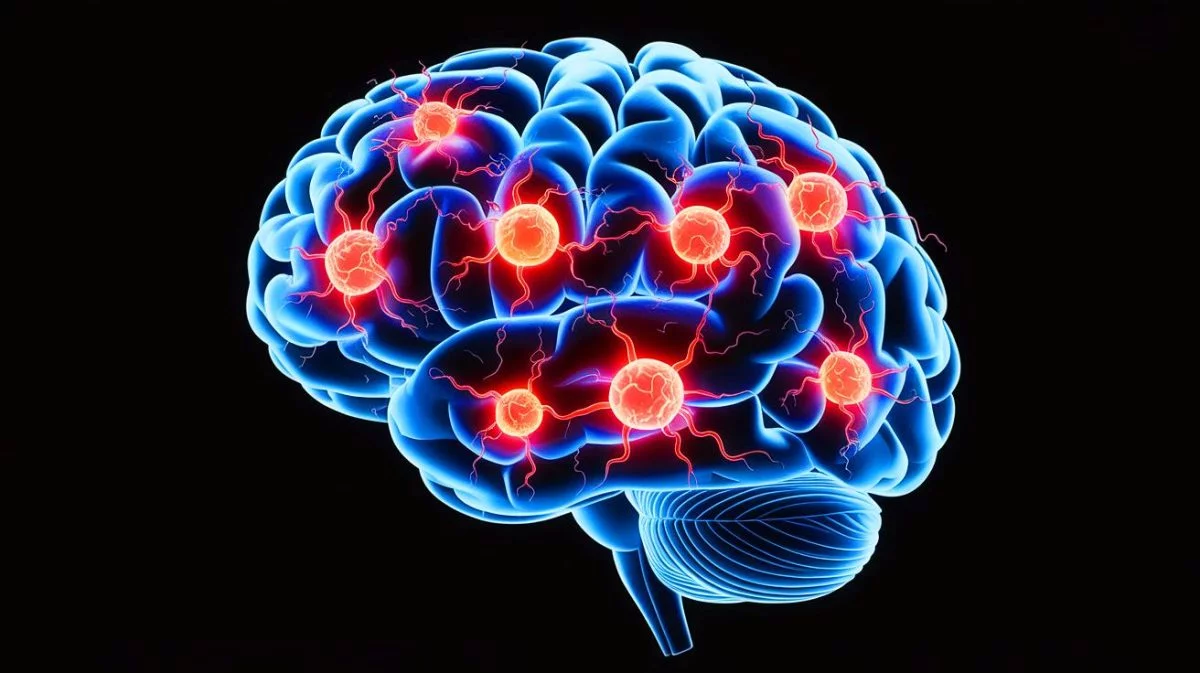| IN A NUTSHELL |
|
In an intriguing revelation, researchers have identified a potential biological trigger for sleep, shedding light on a mystery that has puzzled scientists for decades. The study, conducted by the University of Oxford, suggests that sleep is initiated by an energy overload within brain cells. This groundbreaking discovery not only offers clues about sleep and fatigue but also provides insight into the aging process. As we spend a significant portion of our lives asleep, understanding this fundamental need could have far-reaching implications for health and wellness.
The Role of Mitochondria in Sleep
At the heart of this discovery is the mitochondria, often referred to as the power plants of our cells. These structures are responsible for converting oxygen into energy, a process essential for cellular function. However, when mitochondria are pushed to their limits, they begin to leak electrons, leading to the production of reactive oxygen species (ROS). These byproducts can damage cellular structures if not managed properly. This study found that when the mitochondria within certain brain cells become overcharged, it triggers an internal alarm, initiating the sleep process.
The research team, led by Professor Gero Miesenböck and Dr. Raffaele Sarnataro, demonstrated that this mitochondrial stress acts as a signal to the brain, prompting sleep to allow cells a chance to recover and prevent further damage. This discovery opens a new chapter in the understanding of energy metabolism’s role in maintaining brain health and could reshape how scientists approach sleep and related disorders.
Understanding the Brain’s Sleep Switch
An interesting aspect of this research is the identification of specialized neurons that function as circuit breakers in the brain. These neurons monitor the electron leak within mitochondria and activate the sleep response once a certain stress level is reached. By manipulating the energy flow within these neurons, researchers were able to control the sleep duration in fruit flies by either increasing or decreasing electron transfer. Remarkably, they achieved similar results by using microbial proteins to introduce energy from light, further emphasizing the link between energy overload and sleep initiation.
As Professor Miesenböck remarked, their findings suggest that the answer to why we need sleep lies in aerobic metabolism—the very process that fuels our bodies. This insight could pave the way for new therapeutic approaches to manage sleep disorders and enhance overall brain health.
Connections to Aging and Fatigue
The implications of this study extend beyond sleep, offering potential explanations for the links between metabolism, aging, and fatigue. It has long been observed that smaller animals, which consume more oxygen relative to their body weight, tend to sleep more and have shorter lifespans. Similarly, individuals with mitochondrial disorders often experience severe fatigue without physical exertion. This new mechanism highlights how energy metabolism might influence these conditions, offering a promising avenue for future research.
Dr. Sarnataro emphasized that this research addresses a fundamental question in biology: why we need sleep. By understanding how cells convert oxygen into energy, scientists may be able to develop new strategies to combat fatigue, manage neurological disorders, and slow the aging process. This study, published in the journal Nature, represents a significant advancement in our understanding of sleep’s biological underpinnings.
Implications for Health and Future Research
The revelations from this study could transform sleep science and its applications in medicine. By highlighting the intrinsic link between energy metabolism and sleep, researchers have set the stage for exploring new treatments for chronic fatigue and other related health issues. Understanding the role of mitochondria in sleep regulation could lead to interventions that enhance energy efficiency in cells, potentially improving quality of life for those with sleep disorders or chronic fatigue syndromes.
As our knowledge of the brain’s mechanisms continues to grow, the findings from this study encourage further exploration into how energy balance affects our health. With the potential to influence a range of conditions, from sleep disorders to neurological aging, this research prompts an intriguing question: how might future discoveries in energy metabolism reshape our approach to health and longevity?
Did you like it? 4.4/5 (25)








Wow, this is mind-blowing! Who knew mitochondria were so crucial for sleep? 😴🧠
Can someone explain how this discovery might help with sleep disorders?
Are they suggesting we can control our sleep with light now? That’s wild! 🤯
I’m a bit skeptical—how does this theory explain insomnia?
Finally, an article that makes science feel like sci-fi! Thanks for sharing!
Wait, so sleep isn’t just about rest? It’s about energy management too? 🤔
Did anyone else find the connection to aging and fatigue fascinating?
This sounds promising for those with chronic fatigue syndrome.